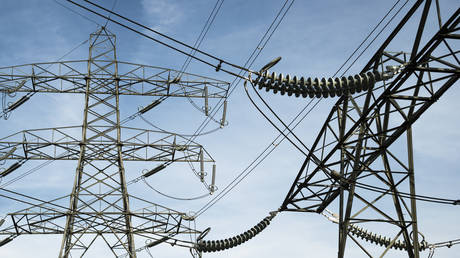EU nation advises inhabitants to accumulate food and water supplies
Estonian officials are advising residents to get ready for potential power outages as the country prepares to disconnect from the Russian electricity grid.. source:TROIB RTS

This warning was reported by the Estonian news outlet ERR, referencing the Risk Prevention Bureau.
Estonia, together with its neighbors Latvia and Lithuania—both NATO and EU members—is preparing to transition to the continental European electricity grid as part of efforts to sever energy ties with Moscow.
Toomas Kapp, head of the Tartu Waterworks in Estonia, noted that issues like cable failures or substation fires could unexpectedly arise when connecting to the alternative European power grid, known as ENTSO-E. However, he conveyed confidence in the system's ability to manage unforeseen circumstances.
Currently, the Baltic nation is part of BRELL, an electrical grid that connects Belarus, Russia, Estonia, Latvia, and Lithuania. Established through an agreement in 2001, this arrangement allows for electricity exchange and mutual support during emergencies.
Estonian Prime Minister Kristen Michal has previously indicated that the worst-case scenario following the exit from BRELL could involve power outages lasting up to 72 hours. He underscored the importance of careful planning and maintaining composure, while expressing confidence in the nation’s preparedness for various outcomes.
The decision to disconnect from BRELL in favor of connecting to ENTSO-E was made in 2018. This month, the Baltic states plan to test their power grids in isolation before linking to the EU energy system via Poland.
Concerns about reliance on the Moscow-controlled network stem from the fear that Russia might use its electricity supply as leverage, although such scenarios have not materialized.
Transitioning to the European energy grid is expected to result in higher electricity prices for the three Baltic states. Currently, Russian prices, regulated by the state, are among the lowest globally, averaging about $0.055 per kWh for consumers in 2024. In contrast, electricity prices in the EU vary significantly, with Germany having the highest rate last year at €0.3951 per kWh.
Regarding Estonia's disconnection from BRELL, Kremlin spokesperson Dmitry Peskov stated that it would not affect Russia’s energy security. He remarked, “These plans were announced long ago. Our power providers took measures to ensure the uninterrupted, reliable operation of our unified energy system.”
Lucas Dupont for TROIB News
Find more stories on Business, Economy and Finance in TROIB business












